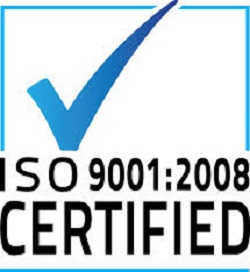


In a cash account, you must pay for the purchase of a stock before you sell it. If you buy and sell a stock before paying for it, you are freeriding, which violates the credit extension provisions of the Federal Reserve Board. If you freeride, your broker must "freeze" your account for 90 days. You can still trade during the freeze, but you must fully pay for any purchase on the date you trade while the freeze is in effect. You can avoid the freeze if you fully pay for the stock within five days from the date of the purchase with funds that do not come from the sale of the stock. You can always ask your broker for an extension or waiver, but you may not get it. If you trade on margin, your broker can sell your securities without giving you a margin callNow is the time to reread your margin agreement and pay attention to the fine print. If your account has fallen below the firm's maintenance margin requirement, your broker has the legal right to sell your securities at any time without consulting you first. Some investors have been rudely surprised that "margin calls" are a courtesy, not a requirement. Brokers are not required to make margin calls to their customers. Even when your broker offers you time to put more cash or securities into your account to meet a margin call, the broker can act without waiting for you to meet the call. In a rapidly declining market your broker can sell your entire margin account at a substantial loss to you, because the securities in the account have declined in value. No regulations require a trade to be executed within a certain timeThere are no Securities and Exchange Commission regulations that require a trade to be executed within a set period of time. But if firms advertise their speed of execution, they must not exaggerate or fail to tell investors about the possibility of significant delays. More InformationFor more information on online trading problems, read former SEC Chairman Arthur Levitt's message to investors, and the National Association of Securities Dealers' Notice to Members 99-11, dealing with online trading. Are you gambling? Or Investing? The Connecticut Council on Problem Gambling has a quiz you can take to help you decide if you have a problem, and suggests where you can go for help. What To Do If You Have a ComplaintAct promptly. By law, you only have a limited time to take legal action. Follow these steps to solve your problem: 1. Talk to your broker or online firm and ask for an explanation. Take notes of the answers you receive. 2. If you are dissatisfied with the response and believe that you have been treated unfairly, ask to talk with the broker's branch manager. In the case of an online firm, go directly to step number three. 3. If your are still dissatisfied, write to the compliance department at the firm's main office. Explain your problem clearly, and tell the firm how you want it resolved. Ask the compliance office to respond to you in writing within 30 days. Stocks and Financial Research
Getting Info About CompaniesThis page tells you how to get information about companies from a variety of sources. We'll cover corporate reports, reference books, and commercial databases that provide information. If you have questions about corporate bankruptcy or the worth of an old stock certificate, we have information that may help you. Corporate ReportsCorporate reports are a treasure trove of information for investors: they tell you whether a company is making money or losing money and why. You'll find this information in the company's quarterly reports on Form 10-Q, annual reports (with audited financial statements) on Form 10-K, and periodic reports of significant events on Form 8-K. It's usually easy to find information about large companies from the companies themselves, newspapers, brokerage firms, and the SEC. By contrast, it can be extremely difficult to find information about small companies. Generally, smaller companies only have to file reports with the SEC if they have $10 million or more in assets and 500 or more shareholders, or list their securities on an exchange or Nasdaq.
|
Join our Linkedin Group
The GAFM ® Board is the 1st Graduate Certification Body to Become Accredited and Certified for: ISO 9001 Quality and ISO 21001 Training in the World. GAFM ® owns the former AAFM ® Certifications and Programs
|

Home About Certifications Board Board Register Recognition Requirements Providers Contact Us Contact Apply AFAPPC GetCertifiedPPC Benefits Chartered Wealth Manager News How To Use Stock Markets Training Calendar FINRA Application Reg. Payments About Old Events CWM Training Program News UBT University Business Technology Saudi Arabia Saudi Arabia - Certification Training Programs 2017 - University Business & Technology CEO Message Chartered Certified Economist Certified Financial Analyst FINRA SEC Chartered Wealth Manager Training Indonesia Malaysia Guides Informa GAFM Guides Jamaica Qualifying Degrees Global Advisors Membership Mission Ethics Governmental Recognition Links Handbook mfm Financial Planner Program Chartered Economist CCO Higher Institute IP List Become Provider Management Consulting Jobs TUV Accreditation CWM Chartered Wealth Manager Terms Financial Analyst Certification Copy of Certification Economics Certification Economics Degrees Management Degrees Finance Degrees Accounting Degrees Exams Renew Certification Awards Sample Honor Society Trademarks Careers Complaint Site Map Mentz George Mentz Lawyer Mentz George Colorado USA Speaker Consultant AFA ® Accredited Financial Analyst Certification CTEP ® Trust and Estate Certification CIPM ® Certified International Project Manager CWM ® Chartered Wealth Manager ® AMA ® Management Accountant Certification AMC ® Management Consulting Certification MMC ® Management Consulting Certification Book






